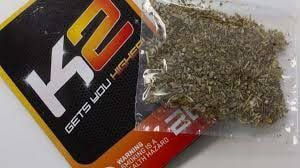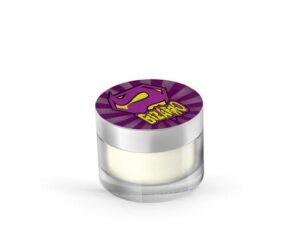K2 Spice herbal incense, also known as synthetic marijuana, has gained notoriety for its potent effects and legal ambiguity. Marketed as “herbal incense” or “potpourri,” K2 Spice contains synthetic cannabinoids that mimic the effects of THC found in natural cannabis. The emergence of K2 Spice has raised concerns due to its unpredictable effects and potential health risks.
On the other hand, Iboga and Ibogaine products are derived from the Tabernanthe iboga plant native to Western Africa. Iboga is a hallucinogenic alkaloid traditionally used in spiritual and healing ceremonies. Ibogaine, a derivative of Iboga, has gained attention for its potential therapeutic effects, particularly in addiction treatment.
While K2 Spice and Iboga/Ibogaine products both have psychoactive properties, they differ significantly in their origins, effects, and purposes. K2 Spice is a synthetic substance designed to mimic the effects of cannabis, often with unknown and potentially harmful consequences. In contrast, Iboga and Ibogaine have a long history of traditional use and are being explored for their therapeutic potential in treating addiction and other conditions.
It is essential to differentiate between these substances and understand the risks and benefits associated with their use. While K2 Spice may pose significant health risks and legal concerns, Iboga and Ibogaine products are being studied for their potential positive impact on mental health and addiction treatment. As research continues to unfold, it is crucial to approach these substances with caution and informed decision-making.
Introduction
K2 Spice herbal incense and Iboga/Ibogaine products are two substances that share the commonality of having psychoactive properties. However, they differ significantly in their origins, effects, and intended purposes.
K2 Spice, also known as synthetic marijuana, is a type of synthetic cannabinoid that is designed to mimic the effects of THC found in natural cannabis. It is often marketed as “herbal incense” or “potpourri” and has gained notoriety for its potent effects and legal ambiguity. While K2 Spice may provide users with a cannabis-like high, it carries significant risks due to its unpredictable effects and potential health hazards. The synthetic nature of K2 Spice means that its chemical composition can vary greatly from batch to batch, making it challenging to predict how individuals will react to it.
On the other hand, Iboga and Ibogaine products are derived from the Tabernanthe iboga plant native to Western Africa. Iboga is a naturally occurring hallucinogenic alkaloid that has a long history of traditional use in spiritual and healing ceremonies. Ibogaine, a derivative of Iboga, has gained attention for its potential therapeutic effects, particularly in the treatment of addiction. While Iboga and Ibogaine also have psychoactive properties, they are being studied for their potential positive impact on mental health and addiction treatment.
The origins of K2 Spice herbal incense and Iboga/Ibogaine products couldn’t be more different. K2 Spice is a synthetic substance manufactured in laboratories with the aim of replicating the effects of natural cannabis. On the other hand, Iboga and Ibogaine products are derived from a plant that has been used for centuries in traditional healing practices. This stark contrast in origins speaks to the varied approaches to psychoactive substances and highlights the importance of understanding the source and composition of these compounds.
In terms of primary uses, K2 Spice is often used recreationally for its perceived psychoactive effects. Users may consume K2 Spice to experience a cannabis-like high, but the risks associated with its use are significant. In contrast, Iboga and Ibogaine products are being explored for their therapeutic potential, particularly in the treatment of addiction. The traditional use of Iboga in spiritual and healing ceremonies has sparked interest in its potential benefits for mental health and well-being. Ibogaine, a derivative of Iboga, has shown promise in helping individuals overcome addiction to substances such as opioids.
While K2 Spice herbal incense and Iboga/Ibogaine products both have psychoactive properties, they differ greatly in their origins, effects, and purposes. The synthetic nature of K2 Spice raises concerns about its safety and legality, while Iboga and Ibogaine products are being researched for their potential therapeutic benefits. Understanding the distinctions between these substances is crucial for making informed decisions about their use and potential risks.
Differences in Origins and Effects
K2 Spice herbal incense, also known as synthetic marijuana, is a man-made product that contains synthetic cannabinoids designed to mimic the effects of THC found in natural cannabis. It is often marketed as a legal alternative to marijuana, but its synthetic nature sets it apart from the natural source of cannabinoids. On the other hand, Iboga and Ibogaine products come from the Tabernanthe iboga plant native to Western Africa. These substances have a long history of traditional use in spiritual and healing ceremonies and are derived from a natural source, unlike the synthetic compounds in K2 Spice.
The significant disparities between the synthetic nature of K2 Spice and the natural source of Iboga/Ibogaine are reflected in their psychoactive effects. K2 Spice, being a synthetic substance, has unpredictable effects due to the varying concentrations of synthetic cannabinoids used in its production. Users may experience intense highs, hallucinations, paranoia, and disorientation, often leading to adverse reactions and health risks. The synthetic cannabinoids in K2 Spice can also interact with the body’s endocannabinoid system in ways that are not fully understood, increasing the potential for negative consequences.
In contrast, Iboga and Ibogaine products derived from the Tabernanthe iboga plant contain the natural alkaloids ibogaine and ibogamine. These compounds have been traditionally used for their hallucinogenic and psychoactive effects in spiritual and healing practices. Iboga is known for inducing profound introspection, emotional release, and spiritual insights, while ibogaine has gained attention for its potential therapeutic effects in addiction treatment. The natural origins of these compounds contribute to their distinct psychoactive effects and potential therapeutic benefits.
The psychoactive effects of K2 Spice and Iboga/Ibogaine products also differ in terms of their safety and long-term impacts on mental and physical health. K2 Spice, being a synthetic substance, carries a higher risk of adverse reactions and toxicity compared to natural plant-based substances like Iboga and Ibogaine. The synthetic cannabinoids in K2 Spice can interact with the brain and body in ways that may lead to addiction, psychosis, cognitive impairment, and other negative consequences.
On the other hand, Iboga and Ibogaine products have been explored for their therapeutic potential in addiction treatment, mental health disorders, and spiritual growth. Ibogaine, in particular, has been studied for its ability to reduce withdrawal symptoms and cravings in individuals with substance use disorders, offering a promising alternative to traditional addiction treatment methods. The natural origins of Iboga and Ibogaine contribute to their potential therapeutic benefits and lower risk of harmful side effects compared to synthetic substances like K2 Spice.
The significant disparities between the synthetic nature of K2 Spice and the natural source of Iboga/Ibogaine are reflected in their origins, effects, and potential health implications. K2 Spice, being a man-made product containing synthetic cannabinoids, poses higher risks of adverse reactions and long-term consequences compared to natural plant-based substances like Iboga and Ibogaine. Understanding these differences is crucial for making informed decisions about their use and potential therapeutic benefits in various health and wellness contexts.
Potential Health Risks and Therapeutic Benefits
K2 Spice herbal incense, also known as synthetic marijuana, poses significant potential health risks due to its synthetic nature and unpredictable effects. Marketed as a “herbal incense” or “potpourri,” K2 Spice contains synthetic cannabinoids that mimic the effects of THC found in natural cannabis. While some individuals may use K2 Spice seeking a similar high to marijuana, the risks associated with its use are far greater.
One of the primary health risks associated with K2 Spice is the lack of regulation and inconsistency in product composition. The synthetic cannabinoids used in K2 Spice can vary widely in potency and composition, leading to unpredictable effects on the user. This variability makes it difficult for individuals to know exactly what they are consuming and the potential consequences of using the substance.
Additionally, the effects of K2 Spice on the brain and body are not well understood, making it challenging to predict the long-term health effects of prolonged use. Some reported adverse effects of K2 Spice include rapid heart rate, vomiting, confusion, hallucinations, and even seizures. The risk of overdose and adverse reactions is particularly high with K2 Spice due to its potency and unknown composition.
In contrast to the potential health risks associated with K2 Spice, Iboga and Ibogaine products are being researched for their therapeutic benefits, particularly in addiction treatment. Iboga, a hallucinogenic alkaloid traditionally used in spiritual and healing ceremonies, has shown promise in treating addiction to substances such as opioids and alcohol. Ibogaine, a derivative of Iboga, has gained attention for its potential to interrupt the cycle of addiction and alleviate withdrawal symptoms.
The therapeutic benefits of Iboga and Ibogaine products in addiction treatment are believed to stem from their ability to induce introspection and spiritual experiences that can lead to insights and behavioral changes. Ibogaine, in particular, has been studied for its potential to reduce cravings and withdrawal symptoms in individuals undergoing treatment for addiction.
It is important to note that while Iboga and Ibogaine products show promise as a potential treatment for addiction, they are not without risks. Ibogaine, in particular, has been associated with risks of cardiac complications and other adverse effects, particularly when used in high doses or in individuals with preexisting health conditions.
The potential health risks associated with K2 Spice herbal incense are considerable due to its synthetic nature, lack of regulation, and unpredictable effects. On the other hand, the therapeutic benefits being researched in Iboga and Ibogaine products offer hope for individuals struggling with addiction. As research continues to unfold, it is essential to weigh the risks and benefits of these substances carefully and approach their use with caution and informed decision-making.
Critical Analysis and Conclusion
In comparing K2 Spice herbal incense to Iboga and Ibogaine products, it becomes evident that these substances have stark differences in terms of their origins, effects, and purposes. While K2 Spice is a synthetic substance designed to mimic the effects of cannabis, Iboga and Ibogaine are derived from a natural plant with a long history of traditional use. This stark contrast highlights the need for informed decision-making and caution when considering the use of psychoactive substances for recreational or therapeutic purposes.
K2 Spice, also known as synthetic marijuana, has gained notoriety for its potent effects and legal ambiguity. Marketed as “herbal incense” or “potpourri,” K2 Spice contains synthetic cannabinoids that mimic the effects of THC found in natural cannabis. However, the emergence of K2 Spice has raised concerns due to its unpredictable effects and potential health risks. Research has shown that the use of synthetic cannabinoids in K2 Spice can lead to adverse effects such as anxiety, agitation, hallucinations, and even psychosis. In addition, there have been reports of severe side effects and even deaths linked to the use of K2 Spice.
On the other hand, Iboga and Ibogaine products are derived from the Tabernanthe iboga plant native to Western Africa. Iboga is a hallucinogenic alkaloid traditionally used in spiritual and healing ceremonies. Ibogaine, a derivative of Iboga, has gained attention for its potential therapeutic effects, particularly in addiction treatment. Research suggests that Ibogaine may help individuals struggling with substance use disorders by disrupting addiction pathways in the brain and providing a unique psychedelic experience that can facilitate introspection and personal growth.
In light of these differences, it is essential to critically analyze the contrasting nature of these substances and emphasize the importance of informed decision-making and caution in their use. While K2 Spice may offer a quick and easily accessible way to experience psychoactive effects, it also comes with significant risks and uncertainties. The synthetic nature of K2 Spice means that its effects are not well-understood, and there is a higher likelihood of experiencing adverse reactions or harmful side effects.
On the other hand, Iboga and Ibogaine products have a long history of traditional use and are being explored for their potential therapeutic benefits. However, it is essential to approach these substances with caution and under the guidance of a trained healthcare professional. The psychedelic properties of Iboga and Ibogaine can lead to profound experiences that may not be suitable for everyone, especially those with underlying mental health conditions or a history of substance abuse.
The contrast between K2 Spice herbal incense and Iboga/Ibogaine products serves as a reminder of the importance of informed decision-making and caution when it comes to using psychoactive substances. While K2 Spice may offer a quick high, it also comes with significant risks and unknown consequences. On the other hand, Iboga and Ibogaine products have shown promise in addiction treatment, but they also require careful consideration and supervision. By understanding the differences between these substances and approaching their use with caution, individuals can make safer and more informed choices for their health and well-being.




